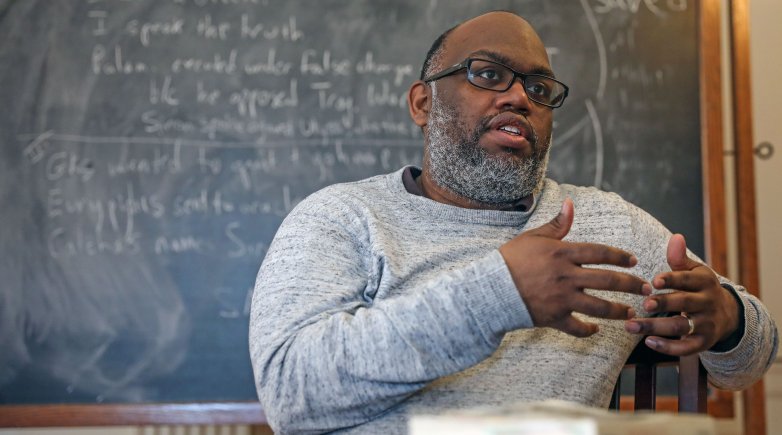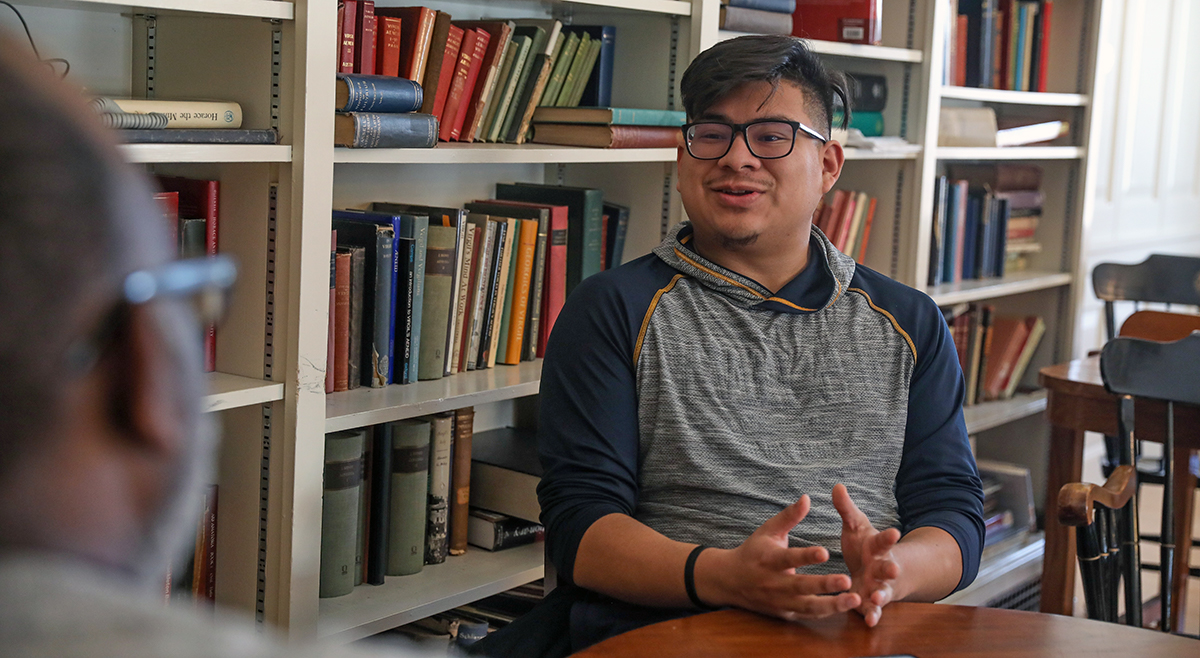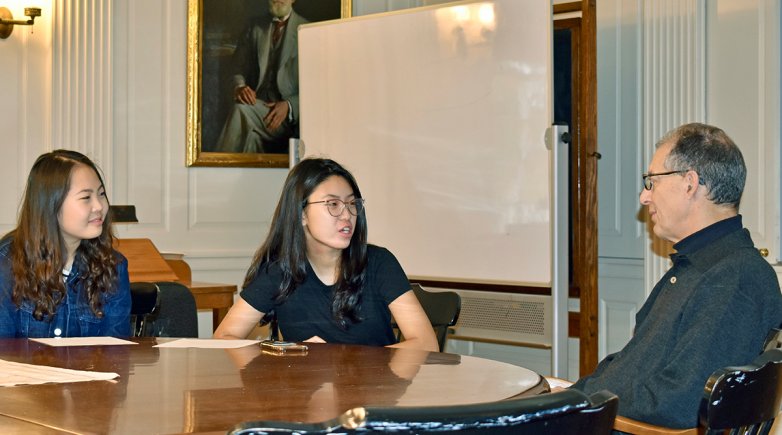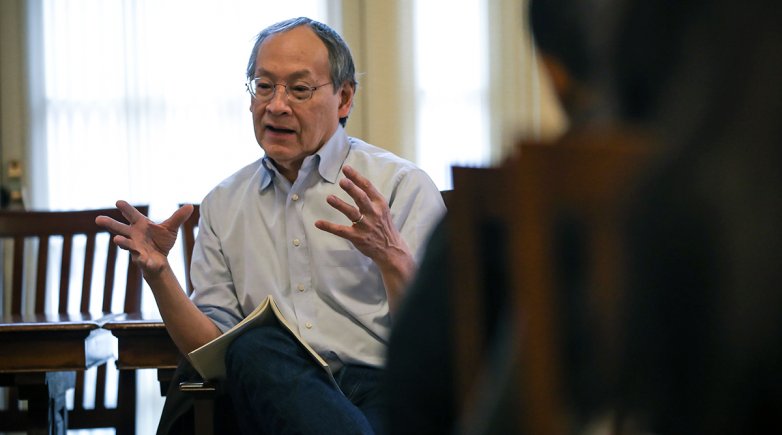7 questions for classics scholar Dan-el Padilla Peralta
We asked him about his love of ancient languages and how they have given him “tools for resistance.”
The life of Dan-el Padilla Peralta would seem the stuff of books. And it is. His memoir, “Undocumented: A Dominican Boy's Odyssey from a Homeless Shelter to the Ivy League,” describes his journey from the Dominican Republic, where he lived until age 4, to a childhood of poverty in New York, and ultimately to Princeton University, where he studied as an undergraduate and is now a professor of classics.
This engaging professor with stunning intellectual reach (he graduated as salutatorian from Princeton as a classics major who also earned a certificate in the Woodrow Wilson School of Public Affairs) recently came to Exeter for a weeklong residency sponsored by the Classical Languages Department. He led a popular four-part lunchtime seminar on the history of Roman slavery, presented at assembly, delivered a public lecture and attended classes.
Toward the end of the week, Johan Martinez Arriaga, a senior working toward a Classical Diploma, sat down with Padilla for an hourlong interview. Their discussion moved fluidly from topic to topic. Both Latinx, they connected over the importance of home community and their personal roles within it, and the Princeton professor’s experiences of living and working within a system of white privilege.
Here are edited excerpts from their wide-ranging conversation.
When did you realize that Latin was for you? When was that moment that you said, "This is what I want to do with my life?"
I became very interested in the idea of studying Latin and ancient Greek while my family was still in the shelter system in New York City, but I didn't have an opportunity to familiarize myself with the languages until I was in the seventh grade after I was admitted to Collegiate in New York City. It was then that I took up Latin.
In the ninth grade, I also started ancient Greek. To quote one of my good friends who put it far better than I could ever, I like the sound that the language makes in my mouth.



